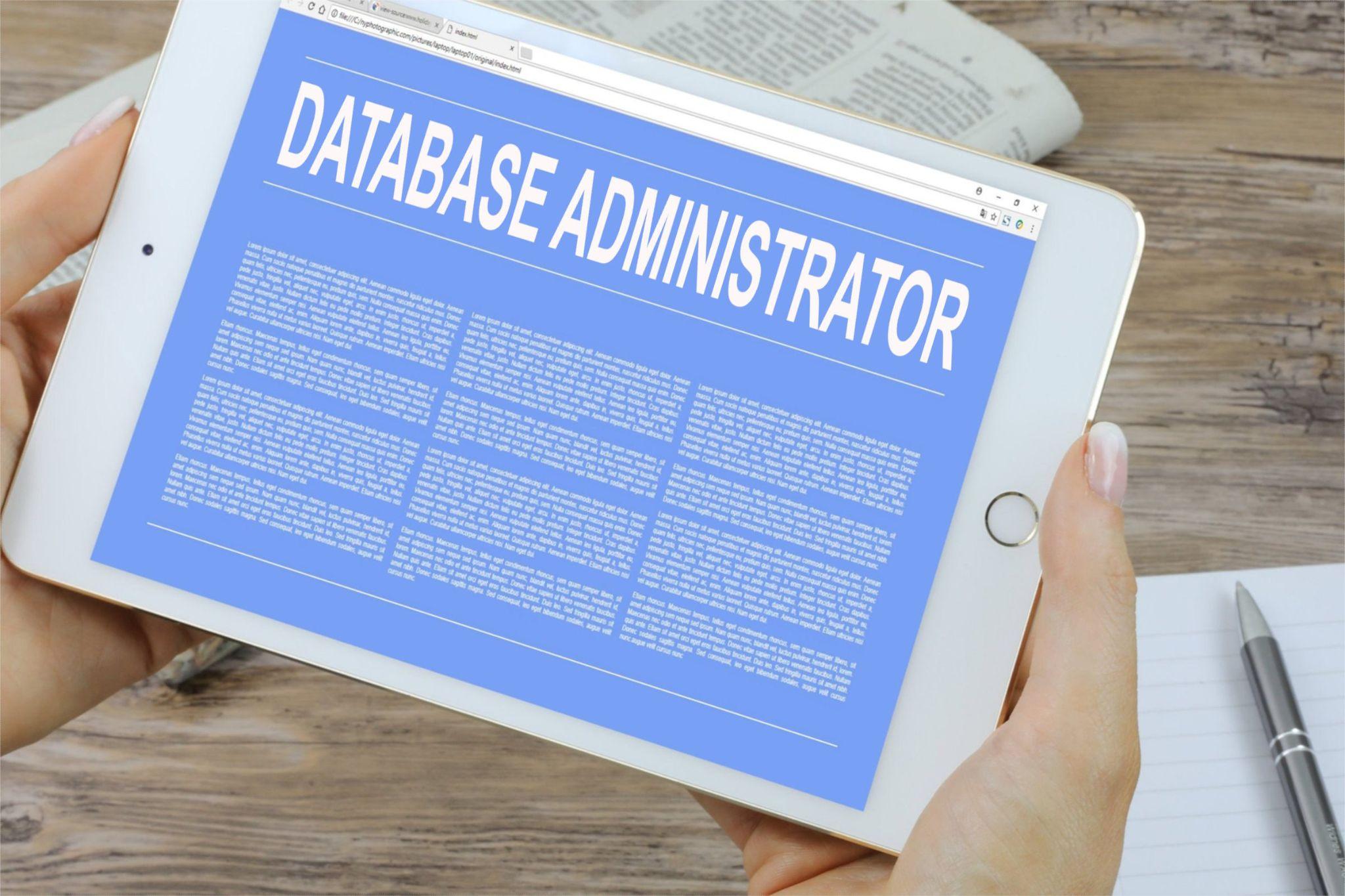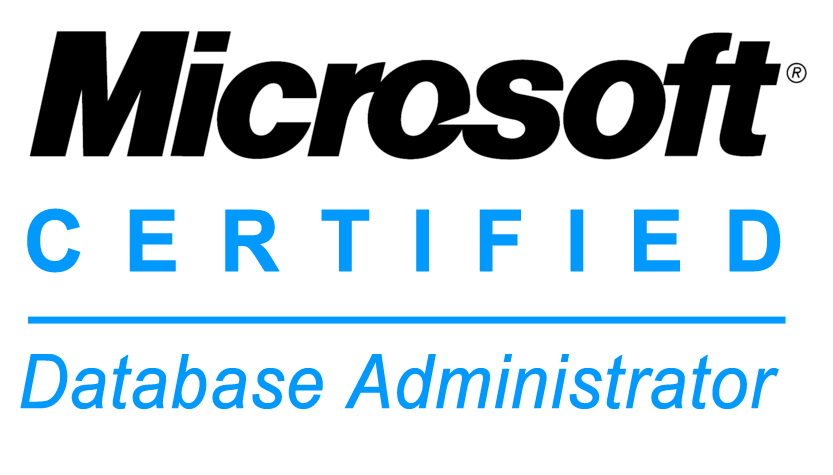Are you interested in areas of the information technology industry, especially database control? Wondering how to become a database admin even though you’ve learned about it many times?
The answer includes six steps, from gaining basic knowledge to how to create a resume that scores in the eyes of employers. For a more detailed and comprehensive look, please scroll down and explore our article in no time!
What Does a Database Administrator Do?
A database administrator (DBA) is in charge of all database-related work and makes it available upon request.
Specifically, their job includes managing, backing up, organizing, and ensuring data availability (financial information and customer records) in all situations.

If you find it difficult to visualize, we will help you clarify it with a typical example. With DBA, the teller can access the information in the banking transactions that you conduct, such as your balance or transaction history.
DBAs hold all access rights to the data, and what they will do with that data includes:
- Modify and merge databases according to company requirements.
- Create and format data to facilitate information storage and organization.
- Security settings and regular backups- keep safe and prevent data theft.
- Provide data to users with appropriate access.
What Should I Need to Become a DBA?
The competition for candidates pursuing the industry is extremely fierce. The more skills and qualities you possess in this industry, the higher your odds of getting hired.
To become a database administrator, you will have to satisfy the most basic requirements of employers in all aspects, from education to career skills. To explore it in a more comprehensive and detailed view, scroll down!
Education
Education serves as the basis for providing the theoretical knowledge you need to become a database administrator. Therefore, you need to focus on it as this will be the first area to receive the employer’s attention.
Receiving formal university training and graduating with a bachelor’s degree will make you stand out in the eyes of employers.
In today’s job market, almost every company will require your resume to include a bachelor’s degree in a technology or computer-related field.

If you want to learn more about the case, here are two specialties that we recommend you consult:
- Computer Science: This major helps you acquire the basics of programming languages and networks. In pursuing it, you might consider working in computer architecture, data management, and logic design.
- Information Technology: This major covers the areas of systems architecture, network administration, computer security, and website technology.
While having a bachelor’s degree is an advantage, that doesn’t mean formal training is the only path to pursuing this profession.
You can also join training centers (with certificates provided) and learn more from online resources. Once you have enough knowledge, prove yourself by trying out certifications related to the database administrator.
Training
“Training” that we want to refer to here includes two areas- knowledge and working style.
In terms of knowledge, it is best to have more work experience in information technology. This advantage will save you from being surprised when faced with computer language or database problems.
So what about training on working style?
A database administrator has no definite standard but depends on the requirements of each company. Therefore, you will have to undergo at least one on-the-job training program before officially working.
These programs allow employees to better understand work processes and departmental policies and procedures. It lasts for a week so that employees can slowly get used to and integrate into the company’s working style.
Certifications
While acquiring experience and knowledge, database administrators will prove their competence through certifications. In addition, they also receive them as performance evaluation rewards from software vendors.
The larger the number and quality of certificates, the more trusted the employer. Therefore, it will be remiss if your resume is missing them.
For those who don’t know where to start, here’s a list of options worth considering:
- IBM Certification
To achieve this recognition, you need to pass a total of 2 exams- the first DB2, then Structured Query Language (SQL). Then, you will get the advanced IBM Database Administrator certification- a more difficult level.
- Microsoft-SQL certification
This certification includes two exams focusing on SQL and database administration. If you’ve already earned this certification, you may want to consider taking on the more difficult level – the Solutions Specialist certification.
- Oracle certification
To be eligible, you must have taken at least one course. Once you’ve achieved this, you might consider pursuing an Oracle Advanced Professional level or even a Master’s degree.
Skills
A bright and elite database administrator cannot lack the necessary working skills during the working process. Cultivate the following qualities because you will always need them:
- Analytical skills
This skill allows you to monitor the operation of the entire computer system. Once problems arise, you need to promptly detect and find ways to fix them so as not to affect the system’s operation.
The more skilled you are, the faster and more accurate you will be able to analyze the state of your system, which can increase your productivity.
- Attention to detail
This skill, although seemingly small, makes a huge contribution to the system’s fault monitoring. Once you ignore even the smallest errors, it will also damage the computer system.
Therefore, a database administrator needs to promptly pay special attention to details to detect and fix problems throughout the working process.
- Communication skill
You did not mishear! If you want to do well at this job, you need to know how to hone your communication skills between yourself and those around you.
Job characteristics require working with a small group of co-workers and separate related departments. Only when you have writing, speaking, and listening skills can you work and convey your ideas to other team members.
In addition, you will need to listen to and absorb opinions from millions of people who are using your system. As a result, you will be able to detect errors promptly and find ways to fix them, providing a better user experience.
- Language and computer platform
Sure! Computer background and language are specialized skills that you cannot lack during your career as a database administrator!
Once you have a solid grasp of the computer fundamentals, you can move on to practice. In the process, learning more programming languages will make working later easier than ever.
Languages you need to pay attention to include HTM, SQL, Apache, and Java. In addition, you should also have a certain understanding of UNIX, Linux platforms, and computer programs, including Oracle and Microsoft Access.
- Problem-solving skills
Mistakes can happen at any time. Therefore, a database administrator needs to be able to deal with it quickly and effectively in any external conditions.
Requirements for this skill include identifying the cause of the problem, researching solutions, and choosing the most appropriate method for that case.
How To Become A Database Administrator
Becoming a database administrator is not an easy journey that can succeed overnight. It will take you a lot of time and effort to achieve your dream.
Below we have compiled six steps and specific instructions for you to become a successful administrator in the future. Scroll down to explore the process from a more holistic perspective!
1. Earn A Degree
The first step in landing the ideal job is always to start with the simplest knowledge of information technology or computer science major.
The more knowledge you have, the more confident and ready you will be when entering the process of practicing with the computer system.
Receiving a formal education at university is ideal for nurturing and developing your specialized knowledge.
After about four years of training, you should be able to graduate with a bachelor’s degree in technology and computer science in hand.
If you don’t opt for this method, you can also get training by joining training centers. To graduate, you will have to pass an exam and get a certificate to prove your choice.
2. Gain Experience
Once you have enough professional knowledge, it’s time to practice to hone your working skills!

Your best bet is to find companies hiring interns and applying for entry-level jobs. Information technology fields have a very close relationship with database administration, which is worthy of your consideration.
It would be best to try positions including system administrator assistant and information technology support associate. After a few months of gaining experience, you will find that your level of work has grown amazingly.
3. Study Key Computer Languages
In acquiring formal knowledge, you had to go through countless sessions in programming languages. But at this step, we still want you to give it a little more time to solidify it again before getting into the actual work.
It would help if you were interested in languages like Apache, Java, SQL, and HTML. To learn more about them, sign up for courses and study through online resources available on the Internet.

4. Learn Computer Platforms
Next, take every opportunity to master how to use platforms like UNIX and Linux. After that, continuing your studies for programs like Oracle and Microsoft Access will help you improve your data analysis skills.
Of course, studying alone will cause you certain difficulties. Therefore, look for more explanations through references and online resources.
If you are not confident with the knowledge, you should sign up for an online course to receive the best education from qualified teachers.
5. Get A Software Certification
Obtaining certification from a software vendor is a useful method of proving yourself. The more quality certifications, the more evidence you have to be confident in your ability.
Therefore, our advice is never to pass up an opportunity for certification and achievement while pursuing your dream. Then, pick out the categories you think are the most successful to include on your resume.
If you don’t know which certification to start with, consider our three recommendations: IBM, Microsoft, and Oracle Certifications.

6. Create A Resume
You’ve come to the last step to take before entering the competition between candidates – building a resume that’s compelling and authoritative!
So, what are the indispensable parts of your resume?
It would help if you gave a brief introduction about yourself. The next content, the most important part, includes education, technical skills, languages, work experience, and the most representative certifications you have achieved so far.

A good CV will help you make a good first impression in the eyes of the employer. Thanks to that, in the next interview round, you will be able to be more confident and score points in the eyes of the company.
FAQs
1. How Much is the Salary of a Database Admin?
Data administrators have extremely high competition among candidates. Therefore, its salary regime is also extremely attractive and worth pursuing.
This salary can vary depending on the employee’s experience and expertise, as well as the geographical location of the company. It can also only be done as a full-time job because of its long uninterrupted study requirement.
If you are curious about an administrator’s annual salary, the answer is between $32,000 and $183,000. In the United States, the average salary that a person pursuing this job will receive in a year is about $92,500.
2. Is It Hard to Become a DBA?
The answer is a big “Yes”! If you don’t have a passion for learning and extraordinary efforts, it will be very difficult for you to pursue this profession.
After you graduate with a degree in a related field, you’ll have to spend a few more years working in another IT role. Only then can you be confident about your work experience and apply for the DBA position.
3. Is Database Administrator a Good Career?
Sure! If you successfully pursue DBA, we guarantee you will receive benefits beyond expectations!
DBA is a very competitive profession, pushing the salary to an ideal level. Besides, you will be working in a very professional environment and have the opportunity to cooperate with many talents in information technology.
The recruitment demand for DBA is still very high and does not tend to decrease. Therefore, consider pursuing this career if you have a strong passion for technology and problem-solving skills.
The Bottom Line
Pursuing a DBA career is a journey full of hardships and challenges that not everyone can be patient enough to conquer.
If you are passionate about information technology and always make efforts, you will receive results worthy of your efforts in the future.
We hope you have understood all the processes and information you needed through this article.
Whatever your choice, good luck on your chosen path!
